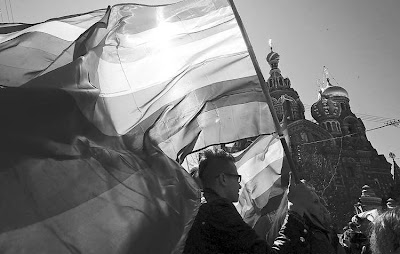‘I’ve lived all over – Glasgow, Leeds, Sheffield,
Sydney – but always come back to Manchester. Well, we do, don’t we?’
What’s
your name?
Rachel Broady
What do
you do?
I’m a qualified journalist and university tutor
but, sadly, I’m currently ‘between jobs’. Any offers gratefully received. Just
nothing where I have to add up; like many journalists I’m useless at maths.
Where do
you live?
A lovely, little housing association flat in
Levenshulme, south Manchester. As tatty as the A6 is, I’m not sure there’s another
part of Manchester I’d ever choose to live in. I’m listening to the police
helicopter overhead as I type. How romantic!
Tell us
the story of how you ended up in Manchester.
I was born in Droylsden, moved to London as a
child then returned with a very strong Cockney accent. Growing up in Newton
Heath, being bullied at school and listening to The Smiths, made sure I was soon
back talking properly. I’ve since lived all over – Glasgow, Leeds, Sheffield, Sydney
– but always come back to Manchester. Well, we do, don’t we?
What’s great
about this city?
It’s home; it really is. I think whether you
were born here, or you’re a ‘woolly back’ from Droylsden, or you’ve arrived
from wherever, Manchester will end up feeling like home and has done to people
for decades, centuries. It also has a political history to be proud of, writers
to admire and buildings that still take my breath away (I mean the Town Hall,
not Beetham Tower!).
What’s not
so great?
The poverty; Manchester has some of the most
deprived areas in the country. Its children are some of the poorest. Manchester
Central has the highest percentage of children living below the poverty line in
the UK; some 47% living in poverty. Wood Street Mission in the city centre has
seen a big increase in the number of families needing basics like school
uniforms. It’s a national problem but Manchester’s ‘glitterati’, the so-called
regeneration, with expensive, exclusive apartment blocks, and the sometimes homogeneous
feel of the city makes the division of rich and poor all the more real. As a
city we should be appalled by this!
Do you
have a favourite Manchester building?
I still love the Town Hall. I know it was built
rather than clear away slums; I know that decision was expensive, arrogant and
boastful but, blimey, it’s beautiful inside. I also like Urbis and I’m fond of
some of the 60s architecture that others hate; Piccadilly Plaza has a place in
my heart. I find a lot of the ‘regeneration’ buildings ugly: the Chips
building, for example. I just think such blocks are soulless, community-sapping
monstrosities. I really don’t like Beetham Tower, either; I don’t care if it
whistles, it looks like Lego.
Piccadilly Plaza
Do you
have a favourite Mancunian?
Obviously any Manchester socialist would have to
say Mary Burns who gave Engels the chance to see first hand what it was like
for the Irish living in Manchester in the mid-1800s. Ok, I know she was Irish.
In fact, she lived in Salford not Manchester. Oh, I’m claiming her as ours for
the purposes of name-dropping! And, in no way connected at all, Les Dawson. I
have a real soft spot for Collyhurst-born Les Dawson. Many will reel, thinking
of his mother-in-law jokes, but you have to remember the way young couples were
forced to live with their mothers-in-law back then, and humour would be a way
to cope! I’m also growing increasingly fond of Terry Christian who seems a
wise, tolerant and interesting auld fella.
What’s
your favourite pub/bar/club/restaurant/park/venue?
I like the Cornerhouse. I remember being taken
there on a school trip when it first opened and I think it’s still a comfy
place to sit and get quietly drunk, while discussing books and that. I also
like Rusholme and would take any visitor there for a decent, cheap curry. Oh,
and I love Lounge Ten. I was born for its style and decadence but can rarely
afford to go; if anyone wants to take me …
What do
you think is missing from Manchester?
I think Manchester has to remember and celebrate
its radical political history. The Peterloo Massacre memorial will go some way
to achieving that but the co-operative movement, the trade union movement, the
suffragette movement – all these Manchester firsts should be an obvious,
celebrated, recognised, constant part of our city’s heritage.
If I was
Mayor for a day I would …
I wouldn’t. I think it’s a silly role.
Who else
would you like to nominate to answer this questionnaire?
James Draper



















